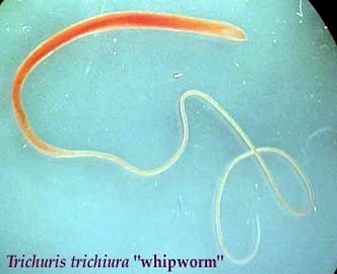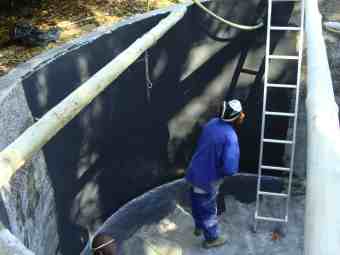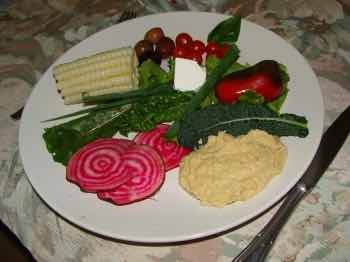Diseases of the Immune System
This page on the diseases of the immune system considers the influence of friendly bugs, bacteria and worms in the gut on our overall wellness.
The Twentieth Century has seen an explosion of the so-called autoimmune diseases where the body takes revenge on itself. Whilst conditions like diabetes go back to ancient times, rheumatoid arthritis and heart attack are relatively new phenomena on the massive scale seen today; inflamed bowels, multiple sclerosis and a host of others too.

This page was last updated by Bernard Preston on 4th January, 2026.
In the last 100 or so years, communities have made significant strides in cleaning up the water-supply and building proper hygienic treatment plants for raw sewerage. Whilst this has drastically reduced diseases such as cholera and typhoid, it has also had the undesired effect of reducing our exposure to the beneficial bugs; there have been unforeseen consequences.
Diseases of the Immune System
A century and more ago people lived close to the soil; their gastrointestinal systems were swarming with friendly bacteria, as well as potential pathogens and worms too.
Today we know that eating active yoghurt and probiotics like kefir, for example is good for the gut; they are filled with living lactobacilli and other friendly microorganisms.
But a dose of worms given deliberately to counter the diseases of the immune-system would make most of us shudder.
Research from Tufts Medical University in Boston has come up with some startling findings.
Professor Joel Weinstock, gastroenterologist and his colleagues have found that the helminths in the colon exert a powerful stimulatory effect on the immunity of the host where they dwell; they induce the fight to counter and destroy any invaders.
These worms sharpen the immune response of our bodies to bugs, good and bad, thus preventing needless tissue-damage.
Deworming the population became a major public wellness project of the early Twentieth century; is it a coincidence that at just that time the prevalence of the diseases of the immune system like MS and rheumatoid arthritis really took off?
And that the corona virus which is really just an abnormal immune response in the lungs called a cytokine storm, has caused such massive destruction to society?
Moreover these autoimmune illnesses, asthma and inflammatory bowel disease too, remain uncommon in the Third-World where worm infestation of the colon is still widespread.
Crohn's disease
Twenty-nine patients with Crohn's disease that was proving difficult to manage with modern medicines were given whipworm ova for half a year; it is an inflammatory bowel condition.
Within three-months the inflammation in the gut of 76 percent of the group had responded very favourably; and 19 of the 29 were in complete remission.
Remember this was a group of patients who were not responding well to the best-known treatment. In fact, they were on the short list for a colostomy. It is a most embarrassing condition; at no time could they ever be more than 2 minutes from the nearest toilet.
With some it is only 30-seconds; one gets little or no warning that we are about to have a most awkward accident.
Ulcerative colitis
Fifty-four people with another bowel disease called ulcerative colitis were split into two groups; one was dosed with whipworm ova and the other given a placebo.
In this double-blind study, the gold standard neither the patients nor their doctors knew which of them got the real treatment and who was given the fake. It is the strongest form of research, removing all forms of bias.
Forty-three percent of the group that were dosed with whipworm, compared with 17% receiving the placebo, responded well to the ova.
It is well known that even a placebo is better than none at all; such is the power of the mind. So effective treatment must do significantly better than the fake.
Find out more about Crohn's disease and helminths at the International Journal of parasitology[1].
Multiple Sclerosis
In separate research a high carbohydrate, low fat diet has been found to be one of the causes of the inflammatory nerve diseases. Read more at tingling in arms and hands; and legs and feet.
Trying to lose weight on starchy meals, together will very low oils is dangerous. Happy nerves are coated with a fatty myelin sheath.
Butyrate and the immune system
Much has been written about butyrate, a short-chain fatty acid produced in the colon by the friendly flora. Supplying plenty of prebiotics to these bugs is problematic in the modern refined "industrial" diet. Most of the starches are broken down in the small intestine to glucose; little fibre reaches those helpful bacteria, viruses and worms that contribute so much to preventing inflammation and the autoimmune diseases.
Prebiotics are the fibrous parts of our food that are not digested in the small intestine but pass on to the colon supplying nutrients for the normal flora.
Understanding more about resistant starch is important for us all, helping to prevent obesity, diabetes and autoimmune diseases like lupus; and multiple sclerosis.
Kefir and the immune system
Probiotics which are friendly yeasts, helminths and bacteria for the intestines are highly recommended for repopulating the gut after medical treatment for infections.
Considering the amount of antibiotics we are exposed to, either from medication or in our food the normal flora in many people is seriously depleted. Kefir is one such concoction made from milk and containing over 30 different bugs; it's like a very strong, active yoghurt.
Contributing greatly to generalised inflammation in the body and diseases of the immune system in general, kefir benefits are a source of friendly bugs that we should all consider; it takes less than five minutes daily of our time to prepare.
In fact having re-established the normal flora, one probably only needs to take kefir now and then; we mostly have it as in this nutritious green smoothie.
"Human beings and all animals, in fact are teeming with life; and we are really just part of the environment.
When we try to separate ourselves
from the environment and exposure to these organisms, we leave
ourselves predisposed to diseases of the immune system."
- Prof JV Weinstock
Rheumatoid Arthritis
Similar studies with white mice have shown a reduction in the severity of RA[3].
Vitamin D and the immune system
Vitamin D binds to specialised receptors in the gut which play an essential role in our ability to fight off disease; it controls the genes responsible for modulating the immune system, preventing it from under-performing or conversely going totally overboard.
Thus it is also vitally involved in the intestinal microbiome; and the development and progression of cancer.
Why in heaven's name you may be asking, is there a page on worms on the Bernard-Preston site? There are two reasons. I have family, friends and patients suffering from diseases of the immune system, conditions which barely existed a century ago. That alone awakens my interest.
But secondly I love the absurd, the paradoxes and the
crazy things of life. I find it profoundly interesting that a medical scientist of high repute is
serious that doctors should be dosing their patients with worms to cure diseases
like MS.
At the time of writing this page there was an ortho-manual therapist in the
Netherlands getting a hard time from a judge for committing quackery; by claiming that she could help patients with MS by manipulating their necks.
I wonder what Judge Renckens would have to say about Prof Weinstock's
work?
The material expressed on this page is gleaned from the nutritional and environmental literature; it is clearly referenced. A plain distinction is made between the author's opinion and that which is scientifically proven. When in doubt consult your health professional.
To suggest a correction or clarification, write to Dr Bernard Preston here. Contact.
Rainwater for the home

It's probably only in the Third World that a person might consider collecting and storing the rain for the home; one possible advantage is that drinking water, filtered only of particulate matter but allowing through a few bugs, may also be beneficial to the immune system.
Storing that water in tanks where it gets warm is not a good idea; underground in a covered reservoir where it remains very cold is perfect.

A test for E. Coli was negative and the soft water is perfect for washing and drinking. Is it good for the immune system? Perhaps and certainly we have none of these diseases in our family.
It also has no plastic microparticles and none of the asbestos fibres carried in the ancient municipal pipes that delivered water in our village for so many years.
Considering a rainwater harvesting model makes great sense, exposing ourselves to low levels of bacteria. Or should one have a UV-lamp to sterilise it?
Or perhaps it is just a part of building eco friendly homes. Our cities are running out of fresh water; making ourselves resilient in the face of climate-change makes sense.
Newsletter
Our newsletter is entitled "create a cyan zone" at your home, preserving both yourself and Mother Earth for future generations; and the family too, of course. We promise not to spam you with daily emails promoting various products. You may get an occasional nudge to buy one of my books.
Here are the back issues.
- Lifestyle and ideal body weight
- What are ultra-processed foods?
- Investing in long-term health
- Diseases from plastic exposure
- Intensive lifestyle management for obesity has limited value
- A world largely devoid of Parkinson's Disease
- The impact of friendly bacteria in the tum on the prevention of cancer
- There's a hole in the bucket
- Everyone is talking about weight loss drugs
- Pull the sweet tooth
- If you suffer from heartburn plant a susu
- Refined maize meal and stunting
- Should agriculture and industry get priority for water and electricity?
- Nature is calling
- Mill your own flour
- Bake your own sourdough bread
- Microplastics from our water
- Alternative types of water storage
- Wear your clothes out
- Comfort foods
- Create a bee-friendly environment
- Go to bed slightly hungry
- Keep bees
- Blue zone folk are religious
- Reduce plastic waste
- Family is important
- What can go in compost?
- Grow broad beans for longevity
- Harvest and store sunshine
- Blue zone exercise
- Harvest and store your rainwater
- Create a cyan zone at your home
Two models of disease
Two French scientists were at odds with each other over a century ago; the debate continues to this day.
Louis Pasteur was in many ways the father of today's medical model. Bugs cause disease; well-being comes from killing them with antibiotics and inoculating the body against them. Creating a sterile environment and disinfecting all surfaces that might have bacteria or viruses lie at the heart of this theory; and chlorinating our water supply too.
Antoine Bechamp on the other hand denied that bacteria could invade robust and vigorous animals causing disease. He claimed that we should instead be looking at the environmental conditions around us and in fact in our bowels; to find out what is destabilising us and making us prone to illness.
Both models of course are valid but cynics say there is no money to be made from the latter; so medicine chose rather to espouse Pasteur's understanding of disease.
Hippocrates promoted both models, using herbs and spices as the precursors of modern drugs; and espousing the view that our food should first and foremost be the source of our wellness.
"Let thy food be thy medicine and medicine be thy food."
Hippocrates (460 - 370 BC)
IMPORTANT CONSIDERATIONS
- Could our drinking water, purified and sterile promote auto-immune disease?
- The friendly "apple diet" is proven to keep the bowel doctor away.
- "Pickled beets" are the best friend of the large intestine, rich in the fibre that the microbiome is utterly dependent on.
Copy and paste into Site Search in the menu bar above.

- Crohn's disease and helminths
- Choice foods.
- Ann. Rheum. Dis. 2008
When browsing use right click and "Open Link in New Tab" or you may get a bad gateway signal.
Did you find this page interesting? How about forwarding it to a friendly book or food junkie? Better still, a social media tick would help.
Address:
56 Groenekloof Rd,
Hilton, KZN
South Africa
Website:
https://www.bernard-preston.com